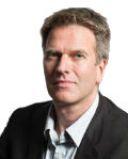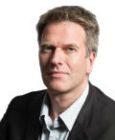Developmental psychologists have always found rich material in their own children. Back in the 1780s, Dietrich Tiedemann used observations of his infant son to support a then-fashionable theory of learning by association. Six decades later, Charles Darwin established his credentials as a developmental psychologist with observations of his son, William. Although less renowned than his studies of finches and Galapagos tortoises, the infancy notebooks formed a crucial part of Darwin's justification of his theory of evolution by natural selection. His musings on William's childhood fears, for example, prefigure the claims of modern evolutionary psychologists that mental processes are shaped by the pressures of natural selection. With the arrival of his daughter, Annie, the great naturalist had the opportunity to make some cross-gender comparisons: "Annie shows no signs of skill in throwing things either as an amusement, or as an offensive act, in same ready way as Willy did: nor does she so readily give slaps."
The parental observer who got the most scientific mileage from his studies was the Swiss psychologist, Jean Piaget. A biologist by training, Piaget was convinced that human intelligence, like evolution, was a constant process of adaptation to a changing environment. Writing in the 1930s, he detailed how his twenty-day-old son reacted to being offered a crooked index finger instead of the nipple, initially rejecting it and then sucking on it happily. For the observing father, baby Laurent's ability to assimilate new objects into his sucking reflex (and to modify the reflex, if need be) exemplified the fine-tuning of knowledge structures necessary for all subsequent intellectual progress.
As developmental psychology became more experimental and systematic, detailed observation of single subjects largely fell out of fashion. One exception was the study of language development, which necessarily remained focused on the messy particularities of individual children's speech. The CHILDES database, for example, maintained at Carnegie Mellon University, makes thousands of hours' worth of infant speech transcripts available to language researchers all over the world. For some of these well-documented talkers, the result has been a kind of fame. Few students of developmental psychology can have failed to have heard of Emily, for example, subject of Katherine Nelson's groundbreaking studies of ‘crib speech'. Another little language-learner, Allison, provided much of the raw material for her mother Lois Bloom's influential theory of how children rely on context when beginning to combine words into sentences.
What do the child participants make of this attention? The ethics of keeping research in the family have come back into focus in recent years, as new methodologies and dwindling research funds have made recruiting one's own offspring a more attractive option. As documented in a recent New York Times article, developmental scientists around the world are equipping their babies with head cameras and plunging their preschoolers into MRI scanners. Those critical of this approach would say that parenting and science don't mix. The dad who is looking for the best for his child has a conflict of interests with the dad who is looking for clean data. The other side of the argument is that no parent-scientist is doing anything that he wouldn't ask non-family volunteers to do. Psychological science needs subjects, and participants who are related to the experimenter receive the same protection as those who are not.
I had more modest ambitions for my own project. When I was writing my book about my daughter's psychological development, A Thousand Days of Wonder, I really just wanted to see whether the wonder of parenthood gained anything in intensity when it was understood in the context of scientific research on the topic. I was not out to gather new experimental data. By observing Athena as she went about her daily business, I didn't expect to make any new discoveries or see things that would help to develop any theory (although I did find that a few of my preconceptions were challenged). I mostly wanted to capture the wonder of what was already there. And I never believed for a moment that I could be an objective observer of her breakthroughs and setbacks. Whichever way I looked at her, a relationship was getting in the way. It didn't surprise me, and I wouldn't have wanted it any different. It would be an odd book about a daughter if it wasn't suffused with a father's love.
Right now, I am happy that I got the balance mostly right. I have worried at times that writing about my children means taking time out from playing with them. But if I wasn't writing about them, I would be writing about something else. I don't think I did anything with Athena that I wouldn't have done if I hadn't been keeping this record. I have of course agonised about how she will feel in the future about having her toddlerhood described in such detail in the pages of a book. But even though I cannot accurately predict her feelings, I don't think that scrapping the project would have been the right thing either. I have done my best to keep her involved in the process throughout, and make her own developing understanding a part of the story. The older she gets, and the more she can read and comprehend, the more confident I become that she has not been damaged by the attention. Perhaps I'm not so different to the neuroscientist who puts his child into an MRI scanner. My tools are words rather than magnetic fields, but I wouldn't subject her to them if I thought they would cause her harm.


